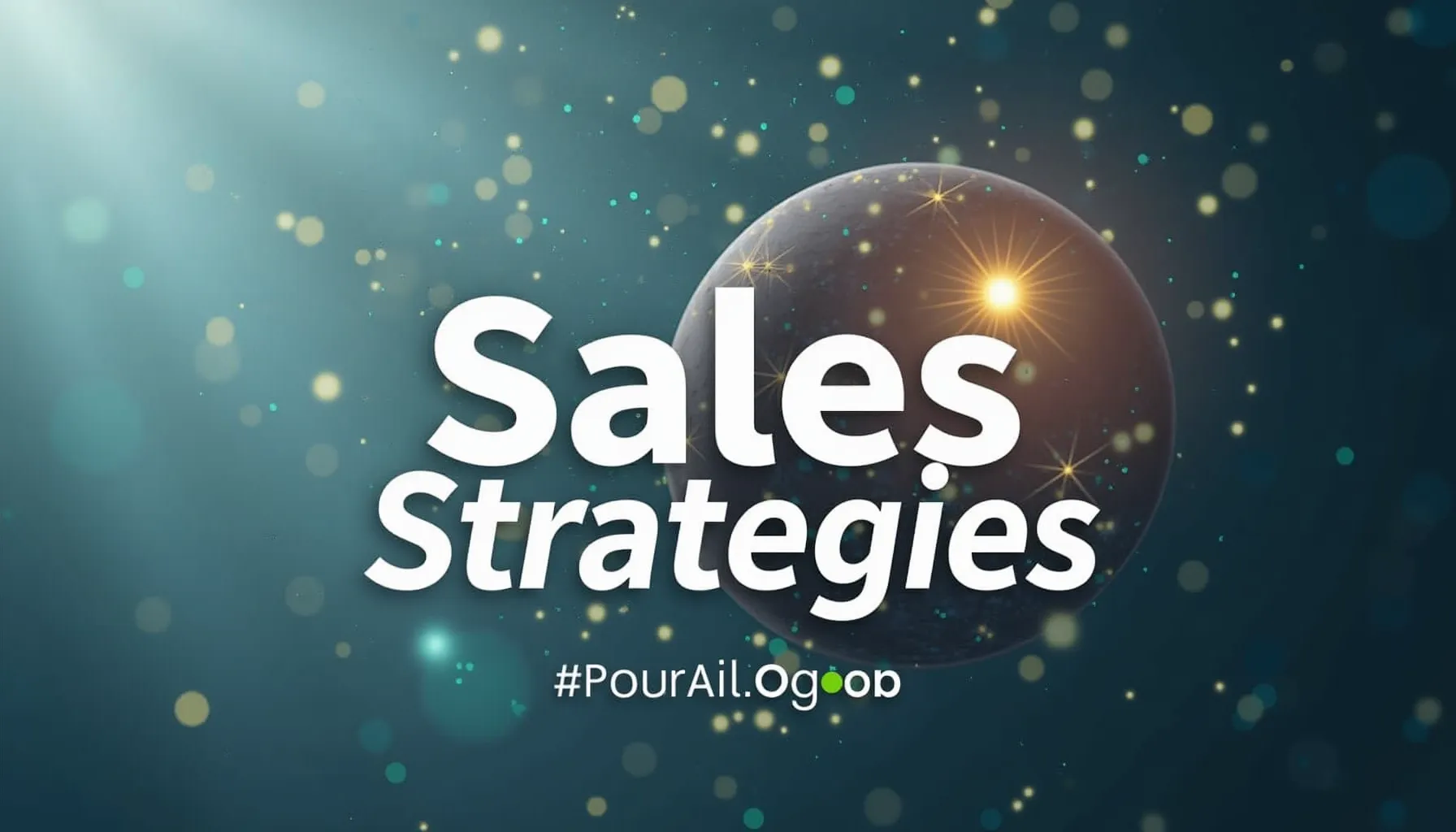Maximize Marketing Sales Support for Business Growth
-
Feb. 26, 2025
-
Josh Blar

Marketing sales support has become a critical lifeline for businesses navigating the complex landscape of modern sales strategies. As companies struggle to bridge the gap between marketing efforts and sales outcomes, the need for a cohesive approach has never been more apparent.
Many organizations find themselves trapped in a cycle of miscommunication and misaligned goals, where marketing teams create content that rarely reaches its full potential, and sales teams fight an uphill battle with insufficient support. This disconnect can cost businesses valuable time, resources, and, ultimately, revenue.
Our deep dive into marketing sales support will unravel the intricate dynamics between these two crucial departments. We'll explore how strategic alignment, innovative tools, and forward-thinking approaches can transform the way businesses generate, nurture, and convert leads.
From understanding the fundamental roles of marketing in supporting sales to uncovering advanced strategies for collaboration, this article promises to be your comprehensive guide. You'll discover practical insights that can help break down departmental silos, improve communication, and drive meaningful business results.
By the end of this journey, you'll have a clear roadmap for creating a more integrated, efficient, and powerful marketing sales support system that can truly move the needle for your organization.
Table of Contents
- Understanding the Role of Marketing in Sales Support
- Key Strategies for Effective Marketing Sales Support
- Essential Tools and Technologies
- Measuring the Impact of Marketing Sales Support
- Common Challenges and How to Overcome Them
- Future Trends in Marketing Sales Support

Understanding the Role of Marketing in Sales Support
In today's hyper-competitive business landscape, the traditional boundaries between marketing and sales have become increasingly blurred. Organizations are discovering that the old model of siloed departments is no longer effective in driving meaningful business growth.
Research reveals a stark reality: sales representatives spend less than 36% of their work hours actively selling. This means the majority of their time is consumed by non-revenue-generating activities, highlighting a critical inefficiency in most business operations.
Marketing sales support isn't just a buzzword—it's a strategic imperative that can dramatically transform an organization's performance. By creating a seamless collaboration between marketing and sales teams, businesses can unlock unprecedented levels of efficiency and revenue generation.
The potential benefits are substantial. Companies with aligned marketing and sales efforts have reported revenue increases of up to 209%. This isn't just about improving individual performance, but about creating a holistic approach that leverages each team's unique strengths.
However, achieving this alignment is no small feat. It requires a fundamental shift in mindset, breaking down long-standing departmental barriers, and implementing strategic approaches that foster genuine collaboration. The challenge isn't just technical—it's cultural.
By understanding and implementing effective marketing sales support strategies, organizations can solve multiple critical challenges:
- Reduce wasted time and resources
- Improve lead quality and conversion rates
- Create more targeted and effective marketing materials
- Enhance overall customer experience
The journey toward true marketing and sales alignment begins with recognizing the need for change and committing to a more integrated approach.
Key Strategies for Effective Marketing Sales Support
Successful marketing sales support hinges on creating a unified approach that breaks down traditional departmental barriers. The most effective strategies focus on alignment, communication, and shared objectives that drive meaningful business outcomes.
One critical strategy is developing comprehensive buyer personas. These detailed profiles go beyond basic demographics, diving deep into customer motivations, pain points, and decision-making processes. By creating nuanced representations of ideal customers, marketing teams can craft more targeted content that directly supports sales efforts.
Cross-departmental collaboration emerges as a game-changing approach. Regular joint meetings shared performance metrics, and integrated goal-setting can transform the relationship between marketing and sales teams. This alignment ensures that marketing efforts directly feed into sales objectives, creating a more streamlined and effective process.
Lead scoring and qualification represent another critical strategy. By adopting a systematic approach to assessing and prioritizing leads, teams can:
- Identify the most promising potential customers
- Optimize resource allocation
- Improve conversion rates
- Reduce time wasted on low-potential leads
Content strategy plays a crucial role in marketing sales support. This involves creating targeted marketing materials that directly address customer pain points, support sales conversations, and provide value at every stage of the buyer's journey.
Perhaps most importantly, successful marketing sales support requires a mindset of continuous improvement. Regular feedback loops, data-driven insights, and a willingness to adapt are essential for creating a truly dynamic and effective approach.
Essential Tools and Technologies
In the realm of marketing sales support, technology has become a game-changer. It offers sophisticated solutions that can dramatically improve interdepartmental collaboration and overall business performance. The right tools can transform how marketing and sales teams communicate, track progress, and drive revenue.
Customer Relationship Management (CRM) systems stand at the forefront of marketing sales support technologies. These platforms provide a centralized hub for tracking customer interactions, managing leads, and providing comprehensive insights into the sales pipeline.
Marketing automation platforms represent another critical technology. These tools enable teams to:
- Automate repetitive marketing tasks
- Create targeted email campaigns
- Track customer engagement
- Generate detailed performance reports
Sales enablement software has emerged as a powerful solution for bridging the gap between marketing and sales. These platforms provide:
- Centralized content repositories
- Performance tracking mechanisms
- Training and onboarding resources
- Real-time collaboration tools
Advanced analytics tools have become indispensable for modern marketing sales support strategies. These technologies offer deep insights into:
- Customer behavior patterns
- Campaign performance
- Lead quality and conversion rates
- Revenue attribution
Communication and collaboration platforms play a crucial role in breaking down departmental silos. Tools like Slack, Microsoft Teams, and other integrated communication systems allow for real-time information sharing and seamless collaboration.
The key to successful implementation lies not just in selecting these tools, but in creating a cohesive ecosystem that supports both marketing and sales objectives. Integration, user adoption, and continuous training are critical to maximizing the potential of these technologies.

Measuring the Impact of Marketing Sales Support
Quantifying the effectiveness of marketing sales support is crucial for demonstrating value and driving continuous improvement. Without robust measurement strategies, organizations risk investing resources without understanding their true impact.
Key Performance Indicators (KPIs) serve as the foundation for meaningful measurement. These metrics provide a comprehensive view of marketing sales support effectiveness, going beyond simple revenue numbers to capture the nuanced contributions of both departments.
Critical KPIs to track include:
- Lead conversion rates
- Sales cycle length
- Customer acquisition cost
- Marketing qualified leads (MQLs)
- Sales qualified leads (SQLs)
Advanced analytics approaches can provide deeper insights into marketing sales support performance.
By implementing sophisticated tracking mechanisms, organizations can:
- Identify precise revenue attribution
- Understand customer journey touchpoints
- Pinpoint areas of potential improvement
- Optimize resource allocation
ROI calculation goes beyond simple monetary measurements. The most effective approach considers both tangible and intangible benefits, including:
- Improved team collaboration
- Enhanced customer experience
- Reduced interdepartmental friction
- Increased operational efficiency
Continuous improvement strategies are essential for maintaining the effectiveness of marketing sales support. This requires:
- Regular performance reviews
- Open communication between departments
- Willingness to adapt and evolve
- Data-driven decision-making
The most successful organizations view measurement not as a one-time task, but as an ongoing process of refinement and strategic alignment. By embracing a holistic approach to measurement, businesses can unlock the full potential of their marketing sales support efforts.
Future Trends in Marketing Sales Support
The landscape of marketing sales support is rapidly evolving, driven by technological advancements and changing business dynamics. Emerging trends are reshaping how organizations approach collaboration between marketing and sales teams.
Artificial intelligence and machine learning are set to revolutionize marketing sales support. These technologies promise to:
- Enhance predictive analytics
- Improve lead scoring accuracy
- Personalize customer interactions
- Automate complex decision-making processes
Personalization at scale is becoming increasingly sophisticated. Advanced technologies will enable businesses to:
- Create hyper-targeted marketing content
- Develop more nuanced buyer personas
- Deliver individualized customer experiences
- Predict customer needs before they arise
The integration of predictive analytics will transform how organizations approach sales and marketing strategies. By leveraging big data and advanced algorithms, businesses can:
- Anticipate market trends
- Identify potential opportunities
- Mitigate potential risks
- Make more informed strategic decisions
Enhanced customer experience strategies will become the primary differentiator for businesses. Organizations that can seamlessly integrate marketing and sales efforts will gain a significant competitive advantage.
The future of marketing sales support is not about technological replacement, but about creating more intelligent, adaptive, and human-centric approaches to business growth. Those who embrace these emerging trends will be best positioned to thrive in an increasingly complex business landscape.


